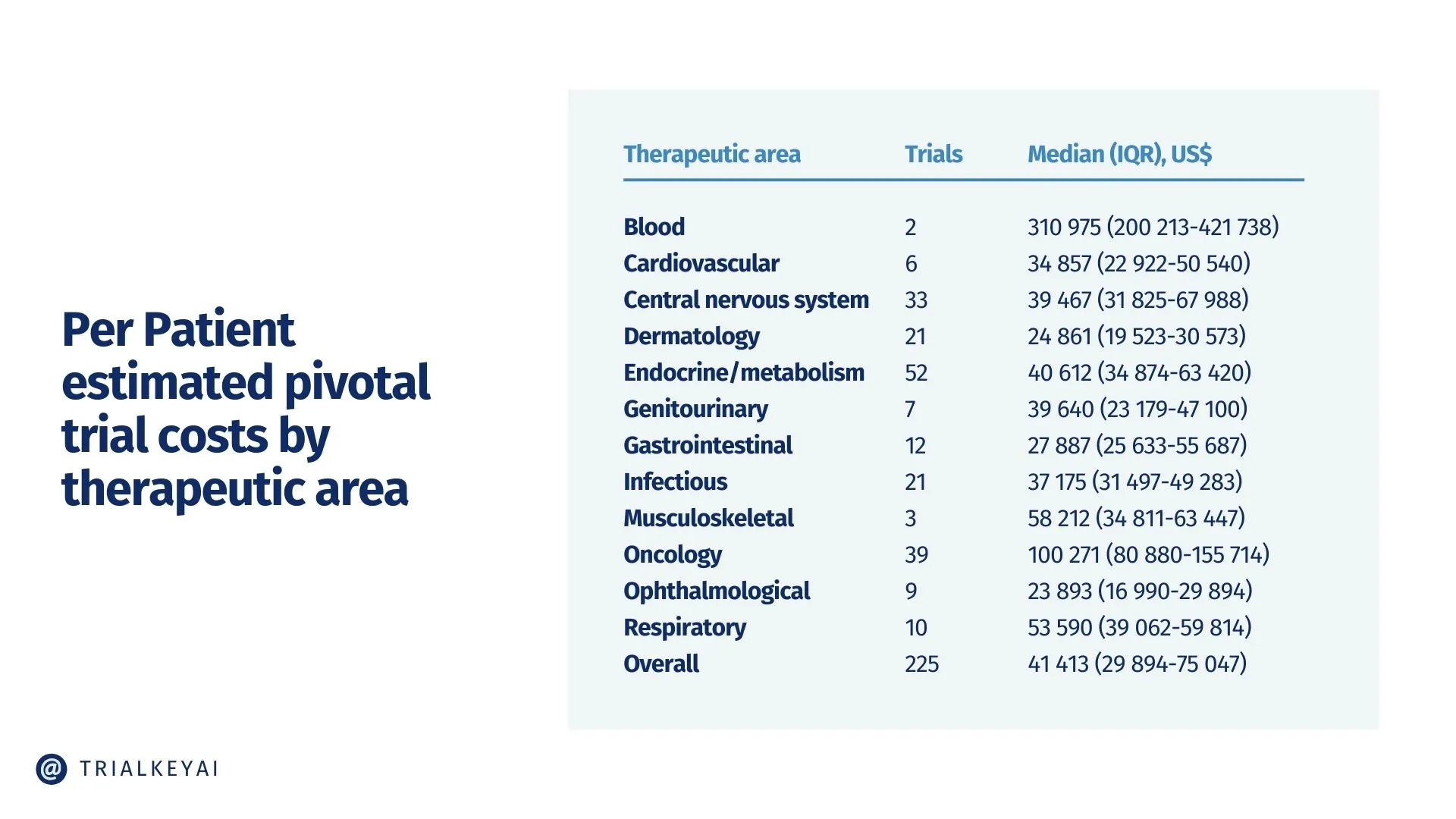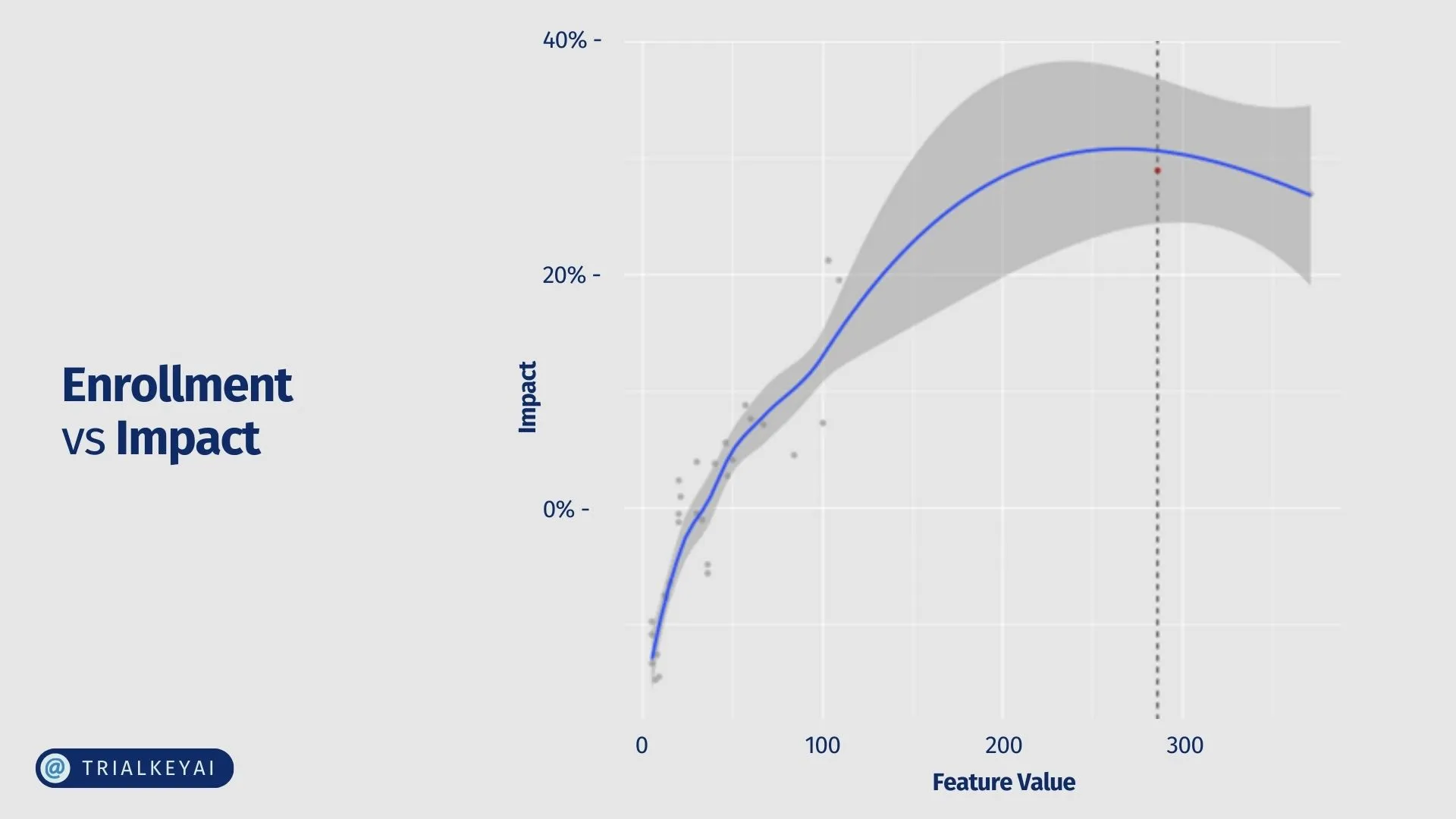Clinical research plays a pivotal role in advancing medical knowledge and improving patient outcomes. However, one of the significant challenges researchers faces is over-recruiting patients. This inevitably leads to inflated costs and inefficient resource utilization.
In this article, we delve into the complexities of patient enrollment, focusing on a case study in Focal Segmental Glomerulosclerosis (FSGS) research, and explore how TrialKey.ai is revolutionizing the process through data-driven optimization.
The Challenge of Over-Recruitment
Among clinical researchers, over-recruiting patients poses a formidable challenge. Not only does it strain resources, but it also escalates costs significantly.
For instance, research shows that in an endocrine study, the average cost per participant is approximately $40,612. In the case of an FSGS study aiming to enroll 286 participants, the total cost balloons to a staggering $11,615,032.
The question is, are 286 participants necessary for the specific trial? Does it have a positive impact on the trial’s probability of success?
Optimizing Patient Enrollment
After analyzing the FSGS study with TrialKey.ai, our software analysis states that the optimal number of participants is 200 as shown below in the highest point of the curve. This number leads to a remarkable 28% boost in the trial’s success likelihood. Likewise, such strategic enrollment would have translated to remarkable cost savings of $3,492,632 for the company (versus 286 participants).
As depicted in the graph generated by TrialKey.ai below, the influence on the probability of success escalates swiftly until reaching the 200-patient threshold. After which, it relatively plateaus. This indicates that enrolling patients beyond the 200-participant mark does not yield higher probabilities of success, effectively translating into unnecessary expenditure.
TrialKey.ai emerges as a game-changer in optimizing patient enrollment. By leveraging advanced algorithms and real-world evidence, TrialKey.ai offers tailored recommendations to achieve optimal participant numbers, thus mitigating overspending and enhancing trial success rates.
Understanding Ideal Patient Enrollment
Traditionally, biostatisticians employ standard power tests to determine the required sample size for clinical trials. These tests, while widely used, rely heavily on assumptions, and may not always yield accurate results.
GPT-4, an advanced language model, plays a crucial role in explaining the intricacies of power tests. These tests essentially assess the statistical power of a study, which is the probability of detecting a true effect if it exists. However, their reliance on assumptions makes them susceptible to inaccuracies.
TrialKey.ai’s Innovative Approach
In contrast to traditional methods, TrialKey.ai harnesses the power of AI and real-world data to optimize patient enrollment. By analyzing vast datasets and considering several factors, including patient demographics, disease prevalence, and historical trial outcomes, TrialKey.ai provides more accurate and data-driven recommendations.
In addition, TrialKey.ai’s approach involves reverse-engineering patient numbers. This is a process that offers a more nuanced understanding of trial requirements. Rather than relying solely on theoretical calculations, TrialKey.ai considers real-world complexities, resulting in more precise and efficient patient enrollment strategies.
In the realm of clinical research, optimizing patient enrollment is paramount for the success of trials. With TrialKey.ai’s innovative platform, researchers can now make informed decisions backed by data-driven insights, thereby streamlining the recruitment process, reducing costs, and ultimately advancing medical breakthroughs.
In embracing cutting-edge technologies and methodologies, TrialKey.ai is poised to revolutionize the landscape of clinical research, paving the way for more efficient and impactful studies in the future.







